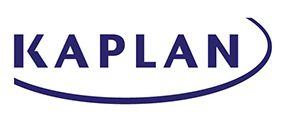Pre-PA track students will take a number of core sciences with the Pre-Med/Pre-Dental students that are required for many PA programs (see the green colored rows in the table below). This affords a unique opportunity for interprofessional education prior to entering graduate health professions programs. Courses specific to the Pre-PA track include anatomy and physiology I and II as well as 1 elective course.
Curricular Course by Student Track
| Track | Summer I and II | Fall | Spring |
| All Students | General Chemistry I and II | Organic Chemistry I | Biochemistry |
| Biology I | Biology II | ||
| Current Topics in Healthcare I | Current Topics in Healthcare II | ||
| Pre-PA | Anatomy and Physiology I | Anatomy and Physiology II | Biostatistics* or Medical Terminology |
| GRE Prep** |
*Students who have previously taken Statistics can substitute Microbiology, Genetics or other online science course available through GW's Department of Biomedical Laboratory Sciences and the GW School of Nursing.
**GRE Prep is optional for Pre-PA students.
For more information about individual courses please see the Course Description.
In addition to the basic science courses, students are exposed to other health professions, contemporary public health and medical topics, and healthcare research through guest speakers who are leaders in their fields during the Current Topics in Healthcare courses.
GRE preparatory courses

Throughout the course of the program, students have access to online test prep materials through Kaplan including live online training, practice questions and full length practice tests. GRE prep courses are offered through a hybrid of live instruction and online modalities.
Academic and Career Advising
Each student is assigned a faculty advisor who supports students throughout their program journey. The faculty:student advising ratio is 1:8 and is intentionally kept low in order to facilitate student access to their advisors and resources they may need. Faculty coach students to improve their interview skills, personal statements, provide a program-based "committee" letter of support, and assist students in securing volunteer experiences in clinical or research settings. Many faculty report continued mentorship of former students, long after the certificate program ends, as graduates enter the medical workforce.